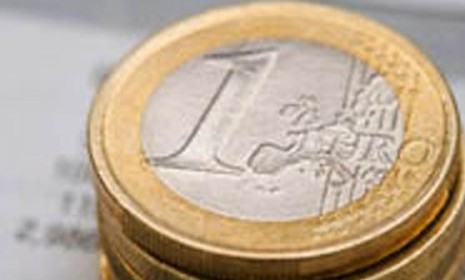The EU's $1 trillion bailout: Will it save the euro?
In a bid to halt the spreading crisis, EU leaders have created a massive fund to keep weak countries afloat. Will it satisfy investors?

A free daily email with the biggest news stories of the day – and the best features from TheWeek.com
You are now subscribed
Your newsletter sign-up was successful
European leaders met over the weekend and hammered out a deal to create a massive €750 million ($1 trillion) bailout fund to prevent the Greek financial crisis from spreading and potentially causing a collapse in the euro. The plan will create a "financial safety net" both to protect other countries facing bankruptcy and also to shore up investor confidence. Will it work? (Watch a Russia Today report about the euro's rescue package)
It has stopped the bleeding: The euro is 1% up against the dollar this morning, and stock markets are on the rise, says Neil Shah in The Wall Street Journal. "Analysts are happy that European leaders are finally getting ahead of the region’s debt problems." For now, at least, the "bold" plan is working.
"Will EU bailout plan be enough?"
The Week
Escape your echo chamber. Get the facts behind the news, plus analysis from multiple perspectives.

Sign up for The Week's Free Newsletters
From our morning news briefing to a weekly Good News Newsletter, get the best of The Week delivered directly to your inbox.
From our morning news briefing to a weekly Good News Newsletter, get the best of The Week delivered directly to your inbox.
Expect 'lower lows' ahead: The "spectacular success" of this deal should last "maybe a week," says Conrad de Aenile at CBS Moneywatch. After a "brief vacation," speculators will be back to "attack the euro" at artificially inflated prices — and drive it to new lows.
"EU aid package should boost euro and markets but not for long"
There's only one way to save the euro: It's time to "stop defending the indefensible," and kick Greece out of the euro, says Gavin Lumsden at Citywire. It may be a "body blow" to the currency, but it's the only way to protect the EU financial system from speculators and allow it to truly regain investors' confidence.
"Is it too late for Greece to leave the euro?"
A free daily email with the biggest news stories of the day – and the best features from TheWeek.com
-
 One great cookbook: Joshua McFadden’s ‘Six Seasons of Pasta’
One great cookbook: Joshua McFadden’s ‘Six Seasons of Pasta’the week recommends The pasta you know and love. But ever so much better.
-
 Scientists are worried about amoebas
Scientists are worried about amoebasUnder the radar Small and very mighty
-
 Buddhist monks’ US walk for peace
Buddhist monks’ US walk for peaceUnder the Radar Crowds have turned out on the roads from California to Washington and ‘millions are finding hope in their journey’